The American analyst and expert on Russia, Paul Goble, delivered the following speech at the Triumph of Liberty reception and dinner on 9 June 2016 in Washington, DC, after receiving the annual Truman-Reagan Medal of Freedom from the Victims of Communism Memorial Foundation, a non-profit educational and human rights organisation.
A quarter of a century ago with the triumph of democratic revolutions first in Eastern Europe and then in the former Soviet Union, many people stopped thinking it was important to continue to be anti-communist. Some, especially those who had long fought for the end of communist rule in these countries, felt they had won and should now go on to other things. And others were seduced by the notions that the world had entered “the end of history”, that ideology was no longer relevant in a time of “the clash of civilisations”, and that talking about communism was passé at best.
We should have learned by now that none of those arguments holds is quite as convincing as they appeared. Many of the revolutions in the former Soviet bloc failed, with old communists remaining in power with only the party name changed. Vast numbers of people still live under communist dictatorships in China, Vietnam, Cuba and elsewhere. History did not end and the clash of civilisations did not eliminate the importance of ideology; however, much some hoped for that outcome.
Consequently, talking about communism, instead of being some kind of survival of a past that had disappeared, is still very important, and I would like to offer ten reasons why I believe this may be even more important now than it was during the Cold War, why I remain an anti-communist, and why you should be too.
First, we have an obligation to honour all those who suffered under communism.
No political or economic system has claimed as many victims as communism. Hundreds of millions of dead, and millions more deprived of their inherent rights and opportunities. We are compelled to honour those who have suffered and died because only in this way can be we be true to ourselves and our values – especially at a time when many people have forgotten what has happened or seek to minimise it or even equate communism with other systems.
“No political or economic system has claimed as many victims as communism. Hundreds of millions of dead, and millions more deprived of their inherent rights and opportunities.”
By remembering the victims of communism, we help ensure that future generations will not live under such a system and recommit ourselves to the defence of our own values which all too often get lost in the noise of political conflict. But more than that, we help encourage all those who are still struggling, including those in post-communist countries where some are building museums to remember the victims while others are gutting these institutions and making them into a celebration of the jailers.
That is not something that is happening only in the imagination of anti-communists as some defenders of this whitewashing of history say. It is happening today at the Perm-36 Museum where exhibits showing how people suffered in the GULAG have been taken down and how exhibits praising such noxious figures as Abakumov and Beria have gone up. Only by combatting this both in those countries and by erecting museums and carrying out educational programmes can we truly honour those who suffered and fought against communism in the past and now. Failure to do so is to give communism a victory that it does not deserve.
Second, we need to recognise how many people still live under that horrific system.
One of the greatest myths circulating in the world is that communism ended with the end of the Cold War. In fact, if anything, more people live under communism now than did then because of the population growth rate in China. Not only is mainland China still communist, but so too is North Korea, Vietnam, Cuba and other countries as well. If what we were fighting in the Cold War was communism, and it was, then the Cold War is not over and our obligations to continue to be anti-communist fighters have in no way lessened.
Beijing’s repression of the peoples of Eastern Turkestan, Vietnam’s suppression of house churches of Christians, North Korea’s nuclear blackmail and Cuba’s celebration of revolutionary heroes who were responsible for some of the most vicious crimes in the past are not just matters of history. They are part and parcel of those countries today. Many here today are fighting these criminal states, and none of us should fail to support them in their struggle. To do so ultimately is to betray not only them but ourselves.
“Some write about China as a case of authoritarian modernisation, as if its policies were no more than perhaps an extreme form of that practice elsewhere. That is nonsense and it must be labelled as such.”
We live in an age when people seem more interested in blurring distinctions than in making them. Some write about China as a case of authoritarian modernisation, as if its policies were no more than perhaps an extreme form of that practice elsewhere. That is nonsense and it must be labelled as such. Communism is based on the denial of the value and rights of the individual human person, and as such, it is and will forever remain antithetical to the principles of free societies.
Third, we must acknowledge how hard it is to purge it from those places where it once existed.
Perhaps the best evidence of how insidious communism is has been provided by post-communist countries which in all too many cases have found it difficult to purge this horror from their social and political life. In rushing to proclaim a triumph over communism, many of those in these countries and in the West as well were prepared to accept as non-communist communists who simply changed the name of the parties they said they represented. Some of these transformations were real: people can change. But many of them were superficial and hid some fundamental continuity.
“Perhaps the best evidence of how insidious communism is has been provided by post-communist countries which in all too many cases have found it difficult to purge this horror from their social and political life.”
As Lithuania’s former independence movement leader Vytautas Landsbergis has taught us, communism can operate under many guises. It can even be called, he writes, “the new world order”. If it is to be overcome, it must be fought regardless of what it calls itself through lustration, education and a commitment not only from the peoples who have suffered its ravages on themselves but also by those who say they are anti-communists but are all too willing to cooperate for profit or out of geopolitical calculation with those who are in fact still communist in everything but name.
That has led to tragedies in Central Asia and the Caucasus, and it is producing an even greater tragedy in the Russian Federation where the failure to extirpate communism is allowing it to return. While few in the West are paying attention, the KGB is being restored, collective farms are now going back up, those who think differently are being imprisoned or exiled, and freedoms of all types are being curtailed. Now is not the time to turn away from the fight. It is the time to recognise how hard and difficult the fight is – and to recommit ourselves to winning it.
Fourth, we must ensure that people in democratic societies know what communism is and what it isn’t.
We also have an obligation to ensure that people in our own societies know what communism was and is and what it is not. There are twin dangers out there. On one hand, all too many of our fellow citizens do not today know why communism represented a unique form of evil and see it as simply one system among many. They accept the arguments of those who say that Stalin may have killed some people, but he should be celebrated because he helped defeat Hitler. There is even a bust of the Soviet dictator at the D-Day Memorial in my home state of Virginia.
And on the other hand, there is a dangerous tendency to portray other social and economic systems as gateways to communism. Democratic socialism in Sweden, however much some may not approve of it, is not communism and the Swedes are not about to become communists. Instead, they are likely to join NATO to defend themselves against the resurgence of the Russian threat. And those who call for greater state support of the poor and despised in their own countries are rarely the communist radicals some of their opponents seek to portray them as.
“Those who call for greater state support of the poor and despised in their own countries are rarely the communist radicals some of their opponents seek to portray them as.”
We need to fight on both fronts, ensuring that new generations will know the truth about communism so that they can combat it and so that they will not see communism where it does not exist. Sometimes the one threat is greater than the other, and sometimes the reverse is true. And it is our obligation as citizens of a democratic and free society to ensure that the necessary distinctions are made in our own countries as well as elsewhere.
Fifth, we must recognise the ways in which the evils of communism have metastasised into other evils, including Islamist fundamentalism.
One of the most disturbing realities of the contemporary world is the rise of Islamist extremism, but one of the most frightening aspects of that is that the Islamist threat grew out of communism rather than being something entirely new. Many know from movies, like Charlie Wilson’s “War”, that Muslims fought and defeated the Soviets in Afghanistan and assume that the anti-communism of the jihadists there means that the jihadist movement is inherently anti-communist. That is not the case and in fact is a dangerous self-deception.
“One of the most disturbing realities of the contemporary world is the rise of Islamist extremism, but one of the most frightening aspects of that is that the Islamist threat grew out of communism rather than being something entirely new.”
Not only have communist ideas penetrated the Islamist cause by the actions of communists and “former communists” who viewed this movement as close to them and a useful ally against democracy and freedom – no one should forget that Vladimir Putin has said that Islam is closer to Russian national culture than Western Christendom – but the Islamist challenge could not have emerged without the active help of the communists and “former communists” who operate today as they have operated throughout their existence on the basis of the principle that “the enemy of my enemy is my friend.”
The history of the interpenetration of communism and Islamism is a long and complicated one – far too long and complicated for me to discuss today. But it is a history we need to learn if we are to cope with the current challenge, which is in large measure the same existential threat to freedom that communism was in the past. That is something some communists and “former communists” know very well as we have seen in Syria; it is something we had better learn before the upsurge in Islamism leads to a resurgence of communism.
Sixth, we must combat revisionist history of what communism did.
One of the most important battlefields in this continuing war is against revisionist treatments of communism. My children have been told by their professors that Stalin raised the standard of living and made lives better and happier for the Soviet population – with the story of the GULAG and other repressions conveniently forgotten or cast aside as not really the most important thing that was going on. And I am sure that in this room tonight there are others with a similar experience.
Obviously, Stalin did many things and it is important to study them all. But they must be put in context rather than treated selectively in the way that they often are. One infamous example of this was a book that argued Stalin deserved credit for increasing social mobility but ignored the fact that he did so by killing again and again many of those who were nearer the top of the social and political pyramid.
“One infamous example of this was a book that argued Stalin deserved credit for increasing social mobility but ignored the fact that he did so by killing again and again many of those who were nearer the top of the social and political pyramid.”
One wise reviewer of that book observed that it was very much like a study of the shoe factory at Auschwitz in which the author decided in advance to ignore all survivor accounts as being inevitably biased and to consider only the inputs of leather and labour and the outputs of shoes. “All the facts,” he said, “are correct, but it misses the point.” That would not be allowed in the case of studies of Nazi Germany, but it is routinely allowed and even encouraged in the case of communism. It is something that must be fought and can be.
Seventh, we must avoid the trap of adopting communist tactics to oppose communism.
One of the real dangers during the Cold War was that some in the West were prepared to adopt the tactics of communism: be the repression or censorship or anything else in the name of defeating communism. That is not a danger that has entirely passed: we cannot fight communism with censorship, we can do so only by providing better information. Likewise, we cannot fight it by repression: we can do so only by making freedom more fully available.
It is always tempting, especially given the short-term thinking that dominates much of our political systems, to turn to what looks like the quick fix. But one of the reasons to remain an anti-communist is not to support such efforts but to fight them –because those who know about communist systems, know that such compromises have the effect of compromising democracy and freedom, and must be opposed lest communism gain a victory that it in no way deserves.
“We cannot fight communism with censorship, we can do so only by providing better information. Likewise, we cannot fight it by repression: we can do so only by making freedom more fully available.”
Right now, we are all talking about fighting lies emerging from the mouths of “former communists” and about the need to combat disinformation. Those are noble goals. Let us fight them in the best way possible by providing more information and by recognising the shortcomings of our own media which all too often gives a platform for lies because of its increasing tendency to confuse balance with objectivity. Again, we wouldn’t do this was fascism; but we are all too willing to do it in the case of communism and “former communists”.
Eighth, we must recommit ourselves to the values of freedom and democracy.
In order to do these things, we must recommit ourselves to the values of freedom and democracy. These values represent a constant goal and constant goad for us to do more. We are privileged to live in societies where these values are celebrated; we must make sure that we live in societies where these values are increasingly realised in the lives of all people and where we are strong enough and confident enough to promote them rather than sacrificing them for short-term gains.
This is a difficult challenge. There will always be those who will sacrifice freedoms for something else, but as one of the founders of the United States pointed out, “those who would sacrifice essential freedoms for a little temporary safety deserve neither liberty nor safety”. We should recommit ourselves to our values so that we do not fall into that trap.
“There will always be those who will sacrifice freedoms for something else, but as one of the founders of the United States pointed out, ‘those who would sacrifice essential freedoms for a little temporary safety deserve neither liberty nor safety.'”
Those who are anti-communists are in the best position to know what threats to freedom look like. We should be modest in advancing our case but we should remain proud to do so – because if we do not carry this fight forward, who will? And if we fail to see the challenge now, we may soon suffer our own Pastor Niemoeller moment, one in which when the threats to our own values intensify there will be no one left to defend them or us.
Ninth, having prosecuted the Cold War, we must reassemble the alliance that allowed us to fight and win that conflict, an alliance that is now in disarray but that can be restored.
One of the most remarkable but least remarked qualities of the Cold War, something that communism produced and that allowed the democratic West to fight for so long, was the alliance between democratic and human rights activists who were horrified by the ways in which communism denied these values to the peoples of the countries where that system existed and business people who recognized that communism was an existential threat to free markets and free people.
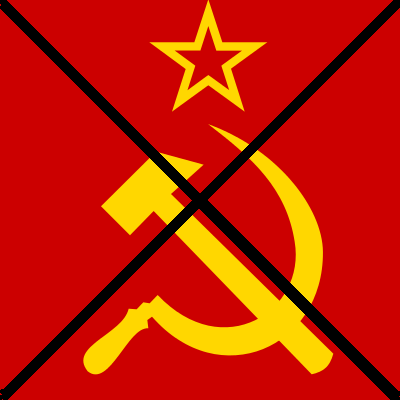 During the Cold War, this alliance kept together and ensured that we would continue to be united. But when some decided the fight against communism had been won, this alliance broke down with each of its components pursuing its own goals separately rather than together with the other. Many democratic and human rights activists continued to talk about their issues, but no longer about those of the business community, and many in business decided that they could exploit the new reality without being concerned about the way in which the absence of freedom in the political system would ultimately lead to the restriction of freedom in the economic realm.
During the Cold War, this alliance kept together and ensured that we would continue to be united. But when some decided the fight against communism had been won, this alliance broke down with each of its components pursuing its own goals separately rather than together with the other. Many democratic and human rights activists continued to talk about their issues, but no longer about those of the business community, and many in business decided that they could exploit the new reality without being concerned about the way in which the absence of freedom in the political system would ultimately lead to the restriction of freedom in the economic realm.
“If there are no free elections and free speech, there will not be free markets because there will not be a serious system of rule of law on which markets depend. And if there are no free markets, there soon will not be free elections or freedom of speech.”
Some nominally post-communist governments have exploited this division. It must be overcome and both sides must come together because freedom is truly indivisible. If there are no free elections and free speech, there will not be free markets because there will not be a serious system of rule of law on which markets depend. And if there are no free markets, there soon will not be free elections or freedom of speech. Consequently, we must reassemble the old alliance rather than acting on the basis of falsely narrow interests.
And tenth, we must always remember that we weren’t and aren’t fighting a word: we’re opposed to what stands behind that word.
Finally, and in a way to repeat, we need to remember that we weren’t and aren’t fighting a word: we were and are fighting the actions that those who publicly or not are carrying out. I am an anti-communist because I value freedom, not because the people who suppress such freedoms call themselves communists. If we are truly anti-communists, we must recognise and communicate to others that the victory over communism will be possible only if there is a victory over all the forms of human oppression that are associated not just with communism but with other political systems as well.
“If we are truly anti-communists, we must recognise and communicate to others that the victory over communism will be possible only if there is a victory over all the forms of human oppression that are associated not just with communism but with other political systems as well.”
That is no easy challenge because all too often we fall into the tactical trap of making alliances with those who are repressive in the name of fighting those who are even more repressive – and then we forget what we are really fighting for. We allied with Stalin against Hitler, which was the right thing to do, but we forgot that in that arrangement, we needed a long spoon and we committed the crime of handing back to the Soviets people who had never been Soviet citizens and whose only crime was to have fought communism during the Russian civil war and then escaped to the West.
The list of such compromises with the truth can be extended almost at will. What is important is that it not be extended any further.
Oh, I’ve heard of Estonia. It is a little country that wants to be free
Let me end by sharing with you a personal story that I believe sums up all that I have said and involved my proudest moment as an American official. In 1990-1991, I worked at the State Department as the special advisor for Soviet nationality problems and Baltic affairs. One of my jobs was to play host to visitors from these countries and show them something of Washington. I can’t remember precisely how many times I took officials and activists in my car around the monuments of Washington, but I can remember one time which neither I nor the others present will ever forget.
I believe that the closest thing we Americans have to a civic cathedral is the Lincoln Memorial, and I always tried to arrange things so that we would end our tour there. On March 29, 1991, a dark and rainy day, I took the president and foreign minister of Estonia on such a tour, and we ended up as planned in the Lincoln Memorial. Because the only common language all three of us had at that moment was Russian, I was translating Lincoln’s words from the Gettysburg Address that are incised in marble on the left side of the building into that language.
I know I wasn’t doing them justice: any translation of such a speech about government “of the people, by the people and for the people” can’t compare with the original. But my translation that day attracted one of the National Park rangers at the site. He came running up and asked me what language we were speaking because of course he had materials in various languages he could offer. I told him we were speaking Russian. He then asked whether these people were from Russia. I responded “no, these people are from Estonia”.
Without missing a heartbeat, this Park ranger smiled and said: “Oh, I’ve heard of Estonia. It is just a little country that wants to be free.” Everyone in our group teared up, and I am quite confident that these words of an ordinary American were more important to the Estonian visitors than any they would hear from far more prominent officials. I know that because both of the Estonians involved have told me and others exactly that.
What being an anti-communist means is not only fighting communism but helping others to fight that system and all others that limit human freedom and, to put it in simplest terms, to help ensure that in the future, there will be many more ordinary Americans who will be ready to answer as the National Park ranger did a quarter of a century ago: Yes, they will say, we know about your suffering and we fully support your aspirations.
That is why I remain an anti-communist and why I very much hope you do too.
I
The opinions in this article are those of the author. Cover: The Communist Party of Kampuchea was responsible for the deaths of up to 2 million Cambodians, nearly a quarter of the country’s then population. Skulls of victims of the Khmer Rouge regime in Cambodia (Wikimedia Commons).

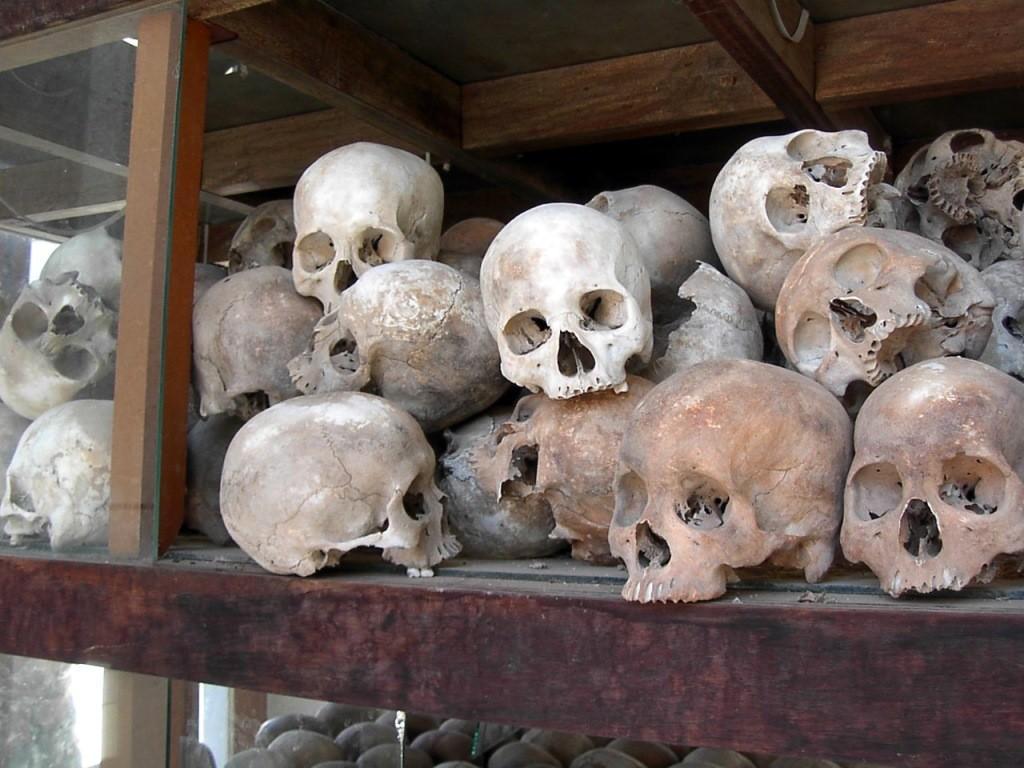

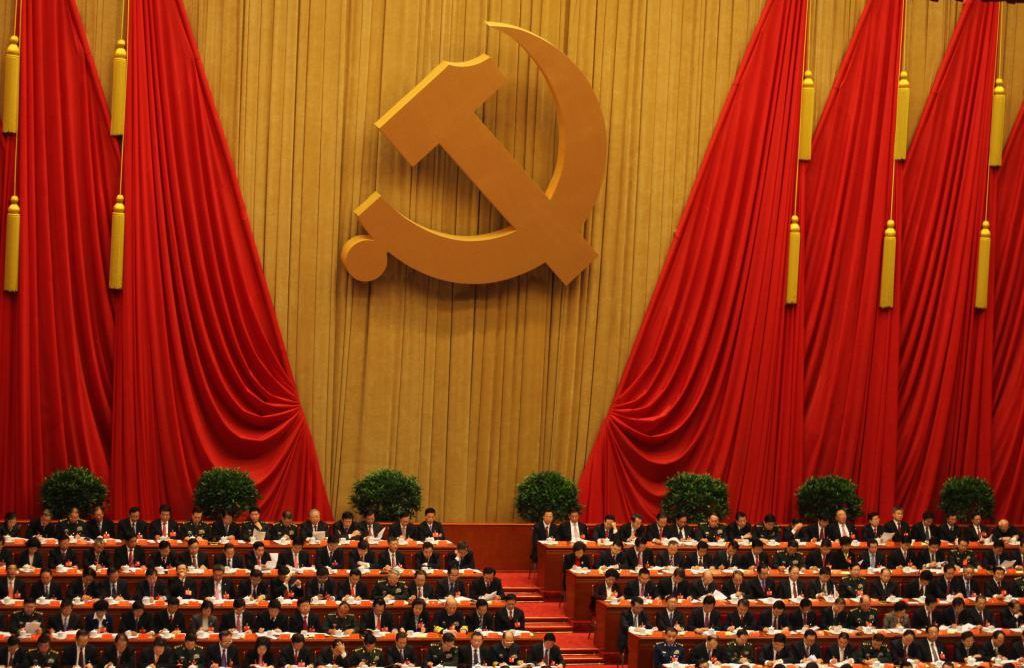
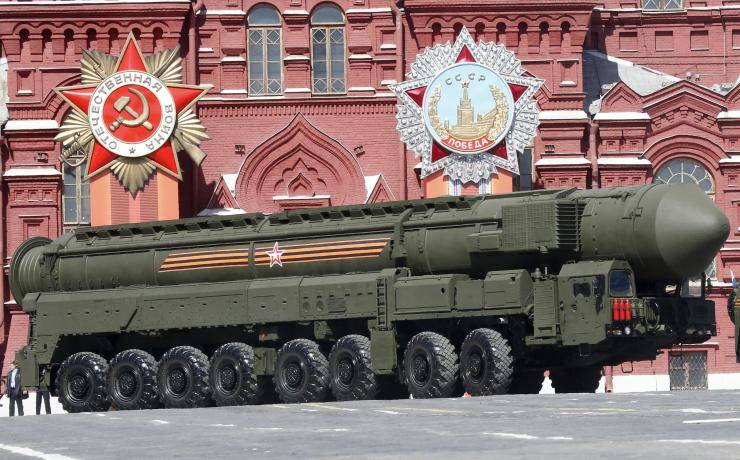
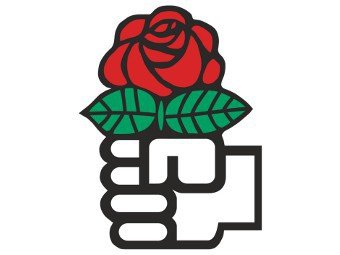

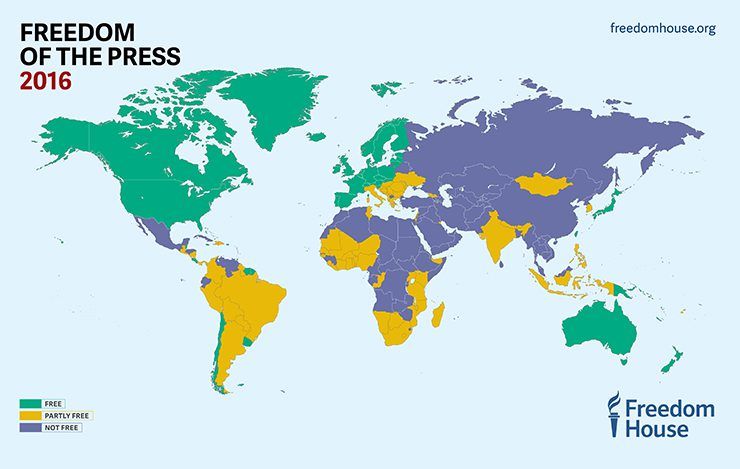
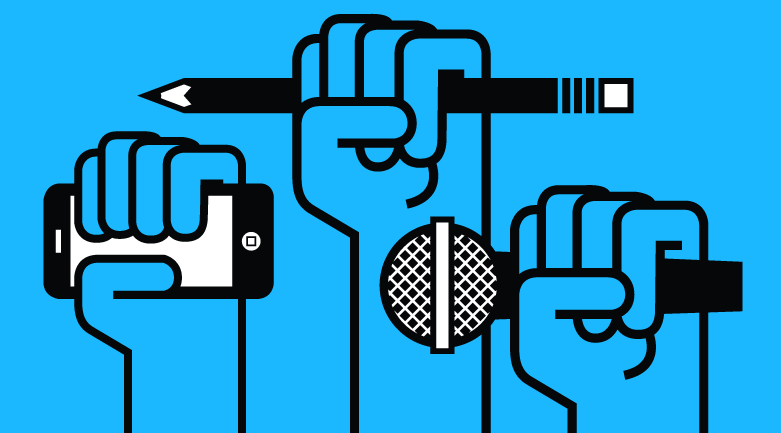

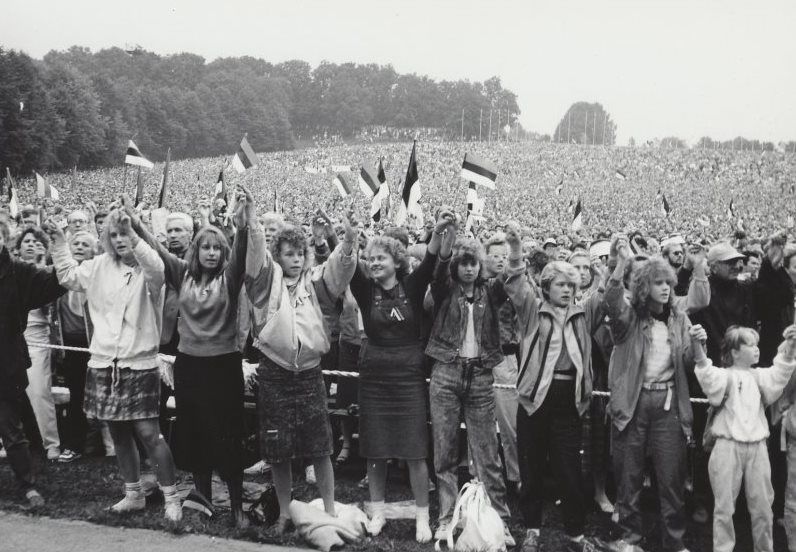
Any form of government is a virtual communism. The owners of this world would like you to think you are free. You are not. They can abduct you, torture you, do anything with you. All they have to say is any of the new catch phrases: national security, terrorism, public safety, public welfare, etc etc.
The threat of communism is real and generally underestimated but so are the threats from dictatorships, many other forms of extremism and from within our own nations of the Western world.
The corrupting influence of money over our nominally democratic political institutions has increased enormously over the past few decades. Politicians routinely act on behalf of the most generous or powerful lobbyist or vested interest rather than the expressed will of citizens.
The mass media has to a large extent degenerated into just providing info-tainment or even partisan propaganda with vitally important investigative journalism a diminishing occupation. The internet offers many useful sources of information but most choose to remain uninformed and even here excessive state control is creeping in. The behaviour of some mass media conglomerates has many totalitarian characteristics and has influenced the outcome of elections. This aspect is extremely serious.
The real threat is extremism rather than just the historically worst subset of extremism, communism.
To finish I would like to honour the huge number of innocent victims of communism, fascism, ultra nationalism, dictatorships of all sorts, religious fundamentalism or extremism (Christian, Islamic, Hindu, Judaic, Buddhist and so on), militarism and racism and also from reckless warfare of which the Western world is also guilty.
I never met my Estonian uncles who died of starvation somewhere in the Siberian gulags. For them, and for all the other uncles, aunts, mothers, fathers, (and the list goes on,) we can’t watch in silence this unfolding nightmare east of Europe.